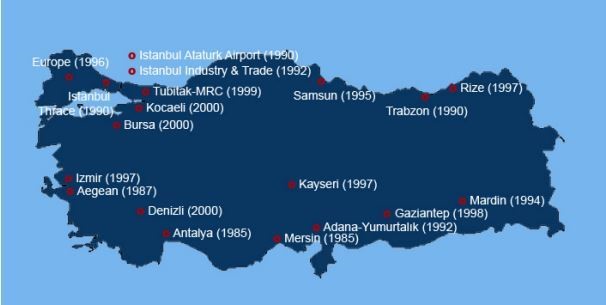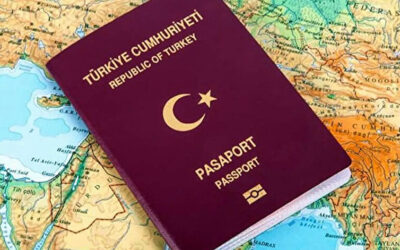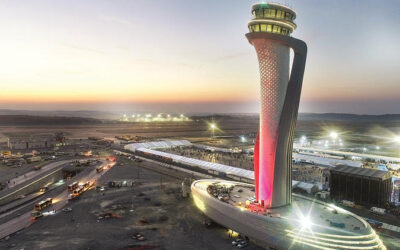
FREE ZONES IN TURKEY
Definition of Free Zone
Free Zones are defined as fenced-in areas in which special regulatory treatment exists for the operating users in order to promote exports of goods and services. Free zones offer more convenient and flexible business climate in order to increase trade volume and export for some industrial and commercial activities as compared to the other parts of country.
• Promoting export oriented investment and production.
• Accelerating foreign direct investment and technology access.
• Directing enterprises towards export.
• Developing international trade.
Activities
In general, all kind of activities can be performed in Turkish Free Zones such as:
• Research and Development (R&D),
• Manufacturing,
• Software,
• General trading,
• Storing,
• Packing,
• Banking and insurance.
Investors are free to construct their own premises, while zones have also available office spaces or warehouses on rental basis with attractive terms. All field of activities open to Turkish companies are also open to joint-venture of foreign companies.
| FREE ZONES IN TURKEY | DATE OF EST. | |
| 1 | MERSIN FREE ZONE |
1985 |
| 2 | ANTALYA FREE ZONE |
1985 |
| 3 | AEGEAN FREE ZONE |
1987 |
| 4 | ISTANBUL ATATURK AIRPORT FREE ZONE |
1990 |
| 5 | TRABZON FREE ZONE |
1990 |
| 6 | ISTANBUL THRACE FREE ZONE |
1990 |
| 7 | ADANA YUMURTALIK FREE ZONE |
1992 |
| 8 | ISTANBUL INDUSTRY & TRADE FREE ZONE |
1992 |
| 9 | MARDIN FREE ZONE |
1994 |
| 10 | SAMSUN FREE ZONE |
1995 |
| 11 | EUROPE FREE ZONE |
1996 |
| 12 | RIZE FREE ZONE |
1997 |
| 13 | KAYSERI FREE ZONE |
1997 |
| 14 | IZMIR FREE ZONE |
1997 |
| 15 | GAZIANTEP FREE ZONE |
1998 |
| 16 | TUBITAK-MRC FREE ZONE |
1999 |
| 17 | DENIZLI FREE ZONE |
2000 |
| 18 | BURSA FREE ZONE |
2000 |
| 19 | KOCAELI FREE ZONE |
2000 |
Advantages & incentives offerd by Free Trade Zone’s in Turkey
Monetary advantages
• Exemption from corporate income tax: Manufacturing companies are 100% exempt from corporate tax over their profits (the regular corporate tax rate in Turkey is 20%),
• Free transfer of profits: profits generated at free zone can be transferred to Turkey or to other countries without the need for any permission,
• Income tax exemption over salaries: Manufacturing companies are 100% exempt from income tax over the salaries of their employees if they sell minimum 85% of their production abroad (the regular income tax rate over salaries in Turkey is between 15% to 35%).
Customs-related exemptions & benefits
• Since free zones are legally outside the customs borders of Turkey, custom related taxes and regulations are not applicable to goods entering the zones (Value-Added Tax (VAT), customs duties, Resource Utilization Support Fund tax (RUSF, normally 6%),
• Companies can decrease their costs by keeping their stocks in a tax-free environment and/or basing their re-exports, transit trade, packaging, labeling and other similar operations within free trade zones.
One Stop Service
• 2nd hand machinery can be imported freely in to FTZs with no age limitation,
• Free circulation of goods within the EU Market,
• Lower construction and infrastructure service costs (exempt from VAT),
• 100% foreign investment is allowed, without any requirement for minimum capital,
• Bookkeeping and accounting can be done in foreign currency,
• Sales to domestic market is allowed,
• Easy to get work permits for expatriate employees,
• Stocks can be kept in FTZsduty-free for an unlimited period of time.
An example: The European Free Zone
BCCT member European Free Zone Founder and Operator Co. (EFZ) / Avrupa Serbest Bölgesi (ASB) is a Free Trade Zone that includes a multi-sectoral industrial site and finds appropriate solutions for the requirements of all its investors. Established in 1999, it is located in the Çorlu district of Tekirdağ on an area covering 2 million m2 of land (click here for map).
More than 150 companies from all over the world – such as 3M, Foxconn, Polyplex Resisns, Indorama, Bekaert Textile, Flamaerotec and MTU Motor have invested into the European Free Zone, where 4,000 people are currently employed.
In 2015 the trade volume generated in EFZ was 2.5 billion USD, making it 4th among the existing 19 free zones in Turkey.
Lands with ready infrastructure, warehouses, production units, offices and open stock areas are ready for the companies who want to start their activities for benefiting the advantages and incentives at below.
Opening a company in a special investment zone in Turkey
Foreign entrepreneurs who want to set up companies in special investment zones are not required to comply with any specific requirements, on the contrary, they will benefit from simplified registration procedures. However, they must comply with the Free Zone Legislation which provides for the licenses which need to be obtained for starting a business in any of the Turkish special investment areas.
Just like in the case of companies established outside the investment zones, the limited liability company is the preferred structure for free zone companies in Turkey.
Our company registration representatives in Turkey can help foreign entrepreneurs who want to start their own businesses in any special investment zone in this country. We can also advise on the licenses which need to be obtained in any of these areas.
The licenses which need to be obtained when opening a Turkish company in a special investment zone are:
• operating licenses which are granted for undertaking a wide range of activities;
• the entry permit which enables companies to enter and operate in any special zone;
• the warehousing permit which enables companies to offer warehousing services;
• the open area use permit which is issued for specific activities completed in an open area;
• special entry permit which is issued temporarily for those entering the area for specific purposes.
A particularity of companies operating in special investment areas is that they are required to direct the taxes they pay to the special bank account opened with the Turkish National Bank for these zones. The money is then used for investments in the same zones.
The content of this article is intended to provide a general guide to the subject matter. Specialist advice should be sought about your specific circumstances.
If you have any questions, please contact us






